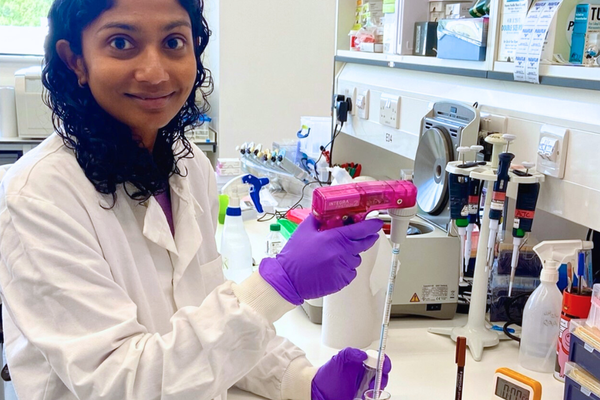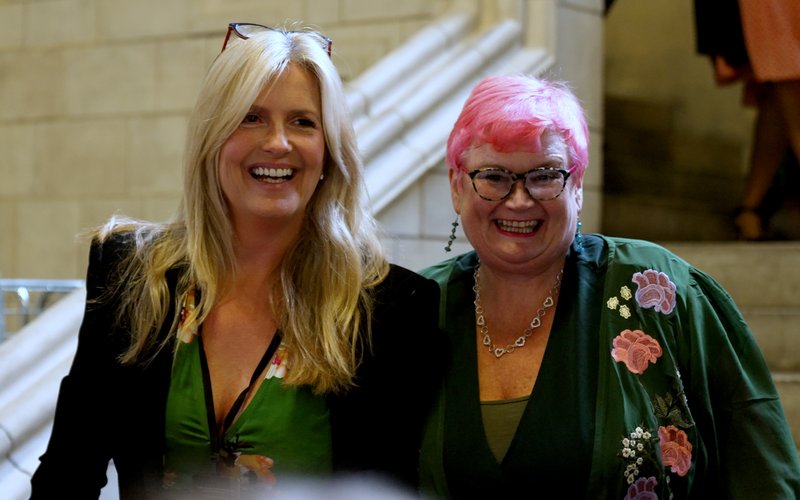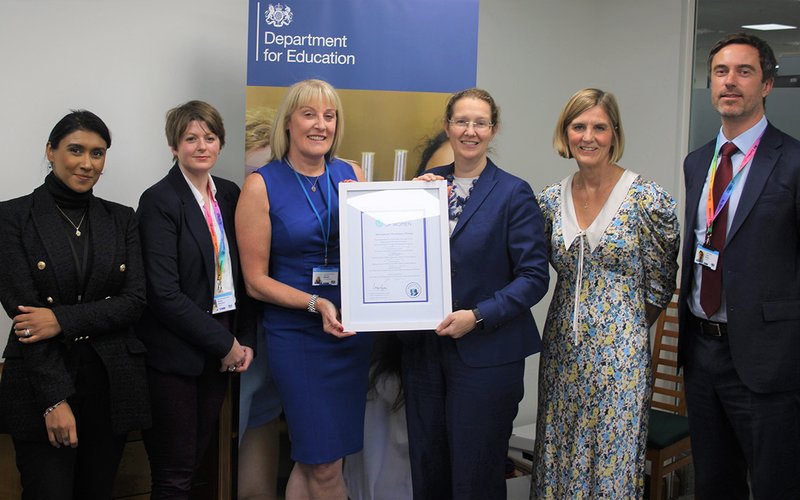
Unlocking potential new treatments for premature ovarian insufficiency
The menopause is when your periods stop. It usually happens between the ages of 45 and 55. There is treatment and support to help with any symptoms you have.

The menopause can be a distressing time for many women. It is the point in your life when your periods stop. This happens because your ovaries stop producing eggs and your hormone levels drop.
This drop in hormones causes menopause symptoms. Some symptoms can be difficult to manage. Make sure you talk to your GP about your menopause symptoms and get the help you need.
The menopause usually happens between the ages of 45 and 55. Some women can have it much earlier, though. This could be because of surgery on the ovaries or a hysterectomy. It can also be caused by cancer treatments like chemotherapy. Sometimes it is because of your genetics or for an unknown reason.
Early menopause is when you’re between the ages of 40 and 45. Premature menopause is when you’re under the age of 40, but this is rare. Your doctor might also refer to this as ‘premature ovarian insufficiency’.
The perimenopause is when you have symptoms of menopause before your periods stop. The menopause then officially starts once you have had no periods for a year or more.
As well as changes to your period you may also have other symptoms. Symptoms of the menopause can have a huge impact on your life. They may also affect your confidence.
You may experience:
Everyone’s experience of menopause is different. Some people may have other symptoms such as:
Symptoms may last for around seven years. Although some people find they last longer. For others they may not last as long.
If you think you have symptoms of perimenopause or menopause, speak to your GP.
They will ask you about your periods and how you’re feeling. Doctors usually diagnose menopause just based on changes to your period and symptoms.
HRT is medicine that can replace the hormones that are at low levels. There are different types of HRT depending on your situation.
You can ask your GP about being prescribed HRT. Ask your GP to talk you through the risks and benefits. This will be useful in helping you decide if HRT is right for you
There are other treatments if you cannot, or choose not to, have HRT.
Other treatments include:
However, it is important to know there are side effects related to all medicines. You can talk to your doctor if you’re worried about beginning any new medication.
Going through perimenopause and menopause can be a difficult change. Try to look after yourself and get support if you need it.
Lifestyle changes can help you cope with menopause symptoms. This includes exercising, eating well and finding ways to relax.
Getting psychological support can also help how you feel and may improve some of your symptoms. CBT (Cognitive Behavioural Therapy) is a type of talking therapy that may help.
Hearing about other people’s experiences may help. Watch our Let’s #ChatMenopause videos featuring women and men sharing their menopause stories.
If you are struggling at work, ask your employer to look at our Menopause Workplace Pledge. We’re calling on all organisations to sign up. This is to make sure everyone going through the menopause is supported. So far, thousands of employers have signed. They’ve taken positive action that is helping millions of workers across the UK.

We want to make sure all women are able to get the help and support they need. This starts with normalising conversations about the menopause. This campaign features films of inspiring women sharing their experiences.

We are calling on employers to sign the Menopause Workplace Pledge and take positive action to make sure everyone going through the menopause is supported.
Let's #ChatMenopause webinar
The Countess of Wessex talks about the impact of menopause on women in the workplace
Menopause and how to survive it with Kaye Adams and Dr Shahzadi Harper
As a women’s health charity, part of what we do is fund research to save and change the lives of women, girls and babies.
We are currently funding research to
We have also helped to develop a CBT-based treatment. This is to help women manage their perimenopause and menopause symptoms. It can help people develop strategies to reduce stress, deal with hot flushes and improve sleep.
And we are delivering vital menopause training to small and medium-sized businesses in Bedfordshire. Our Menopause Xplored programme uses virtual reality to help people understand the impact that menopause can have. It also helps companies develop appropriate menopause support for their staff.